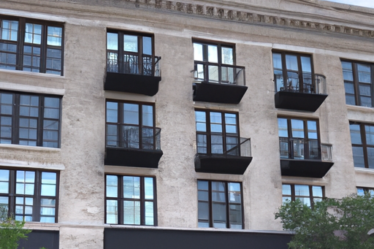
Impact of COVID-19 on the U.S. Hotel Industry in Q2
The COVID-19 pandemic has had a significant impact on various industries around the world, and the U.S. hotel industry is no exception. In the second quarter of this year, the industry experienced a slowdown in growth, as travel restrictions and safety concerns kept many potential guests at home.
One of the main reasons for the slowdown in growth is the decrease in business travel. With many companies implementing work-from-home policies and limiting non-essential travel, the demand for hotel rooms from business travelers has plummeted. This has had a ripple effect on the industry, as hotels that relied heavily on corporate bookings have seen a sharp decline in revenue.
In addition to the decrease in business travel, leisure travel has also been significantly impacted. Many people have chosen to postpone or cancel their vacations due to the uncertainty surrounding the pandemic. This has resulted in a decrease in bookings for hotels in popular tourist destinations, such as Las Vegas and Orlando.
Furthermore, the fear of contracting the virus has led to a decrease in overall travel. People are hesitant to stay in hotels and interact with strangers, even with enhanced cleaning protocols and safety measures in place. This has further contributed to the slowdown in growth of the U.S. hotel industry in the second quarter.
The impact of the pandemic on the hotel industry can be seen in the financial performance of major hotel chains. Many of them have reported significant declines in revenue and occupancy rates. For example, Marriott International reported a 72% decrease in revenue per available room (RevPAR) in the second quarter compared to the same period last year.
The slowdown in growth of the U.S. hotel industry has also had a negative effect on employment. With fewer guests and lower revenue, hotels have had to lay off or furlough employees to cut costs. This has resulted in a significant increase in unemployment rates within the industry, further exacerbating the economic impact of the pandemic.
However, despite the challenges faced by the hotel industry, there are signs of recovery. As travel restrictions are gradually lifted and people become more comfortable with the idea of traveling, there has been a slight uptick in bookings. Some hotels have also adapted to the changing landscape by offering flexible cancellation policies and implementing contactless check-in procedures to reassure guests.
Moreover, the hotel industry has been proactive in implementing safety measures to protect guests and employees. Enhanced cleaning protocols, social distancing measures, and the use of personal protective equipment have become standard practices in hotels across the country. These measures have helped to instill confidence in potential guests and have contributed to the gradual recovery of the industry.
In conclusion, the COVID-19 pandemic has had a significant impact on the U.S. hotel industry in the second quarter. The decrease in business and leisure travel, as well as the fear of contracting the virus, has resulted in a slowdown in growth and a decline in revenue. However, there are signs of recovery as travel restrictions are lifted and hotels adapt to the changing landscape. With enhanced safety measures in place, the industry is slowly regaining the trust of potential guests and working towards a brighter future.
Factors contributing to the Slowdown in Growth of the U.S. Hotel Industry in Q2

The U.S. hotel industry has experienced a slowdown in growth during the second quarter of this year. This unexpected decline has left many industry experts puzzled and searching for answers. In this article, we will explore some of the factors that have contributed to this slowdown.
One of the main factors that has impacted the growth of the U.S. hotel industry is the increase in competition. With the rise of home-sharing platforms like Airbnb, traditional hotels are facing stiff competition for bookings. Many travelers are now opting for the convenience and affordability of staying in someone’s home rather than a hotel. This shift in consumer behavior has undoubtedly had an impact on the hotel industry’s growth.
Another factor that has contributed to the slowdown is the increase in hotel room supply. In recent years, there has been a surge in hotel construction, resulting in an oversupply of rooms in many markets. This oversupply has led to increased competition among hotels, driving down prices and making it more difficult for hotels to achieve the same level of revenue growth as in previous years.
Additionally, the trade war between the United States and China has had a negative impact on the hotel industry. The trade tensions between the two countries have resulted in a decline in Chinese tourists visiting the United States. China is one of the largest sources of international tourists for the U.S., and the decrease in Chinese visitors has had a significant impact on hotel occupancy rates and revenue.
Furthermore, the rising costs of labor and operating expenses have also played a role in the slowdown. As the economy has improved and unemployment rates have decreased, hotels have had to increase wages to attract and retain employees. This increase in labor costs, coupled with rising energy and utility costs, has put pressure on hotel profitability and hindered growth.
Lastly, the uncertainty surrounding global events and the economy has made travelers more cautious about their spending. With ongoing trade tensions, political instability, and concerns about a potential economic downturn, many travelers are choosing to postpone or cancel their travel plans. This decrease in travel demand has had a direct impact on hotel occupancy rates and revenue.
In conclusion, several factors have contributed to the slowdown in growth of the U.S. hotel industry in the second quarter. Increased competition from home-sharing platforms, an oversupply of hotel rooms, the trade war with China, rising labor and operating costs, and uncertainty in the global economy have all played a role in this decline. While the industry may be facing challenges, it is important for hotels to adapt and find innovative ways to attract and retain customers in this changing landscape. By focusing on providing exceptional guest experiences and offering unique amenities, hotels can position themselves for success in the future.
Strategies to Revive the Growth of the U.S. Hotel Industry in Q2
The U.S. hotel industry has experienced a slowdown in growth during the second quarter of this year. This is concerning news for hotel owners and operators who rely on a steady stream of guests to keep their businesses thriving. However, there are strategies that can be implemented to revive the growth of the U.S. hotel industry in Q2.
One strategy that can be effective in boosting growth is to focus on marketing efforts. Hotel owners and operators should invest in targeted advertising campaigns to attract new guests. This can include online advertisements, social media promotions, and partnerships with travel agencies. By increasing visibility and reaching a wider audience, hotels can increase their chances of attracting more guests and boosting revenue.
Another strategy to revive growth is to enhance the guest experience. This can be achieved by investing in renovations and upgrades to hotel facilities. By offering modern amenities and comfortable accommodations, hotels can attract more guests and encourage repeat visits. Additionally, providing exceptional customer service is crucial in ensuring a positive guest experience. Hotel staff should be trained to go above and beyond to meet guest needs and exceed expectations.
In order to revive growth, hotels should also consider diversifying their offerings. This can include expanding their services to cater to different types of travelers. For example, hotels can offer special packages for business travelers, families, or couples on romantic getaways. By tailoring their offerings to specific target markets, hotels can attract a wider range of guests and increase occupancy rates.
Furthermore, hotels should consider partnering with local businesses and attractions to create unique experiences for their guests. This can include offering discounted tickets to nearby attractions, organizing guided tours, or collaborating with local restaurants to offer exclusive dining experiences. By providing guests with a comprehensive and memorable experience, hotels can differentiate themselves from competitors and attract more bookings.
Additionally, hotels should focus on building a strong online presence. In today’s digital age, travelers rely heavily on online reviews and ratings when making booking decisions. Hotels should actively manage their online reputation by responding to guest reviews and addressing any concerns or issues promptly. By maintaining a positive online presence, hotels can build trust with potential guests and increase bookings.
Lastly, hotels should consider implementing loyalty programs to encourage repeat business. By offering rewards and incentives to loyal guests, hotels can foster long-term relationships and increase customer retention. Loyalty programs can include perks such as discounted rates, complimentary upgrades, or exclusive access to hotel amenities. By rewarding guests for their loyalty, hotels can create a sense of value and encourage repeat visits.
In conclusion, the U.S. hotel industry may have experienced a slowdown in growth during the second quarter, but there are strategies that can be implemented to revive growth. By focusing on marketing efforts, enhancing the guest experience, diversifying offerings, building a strong online presence, and implementing loyalty programs, hotels can attract more guests and increase revenue. With careful planning and execution, the U.S. hotel industry can bounce back and continue to thrive in Q2 and beyond.


